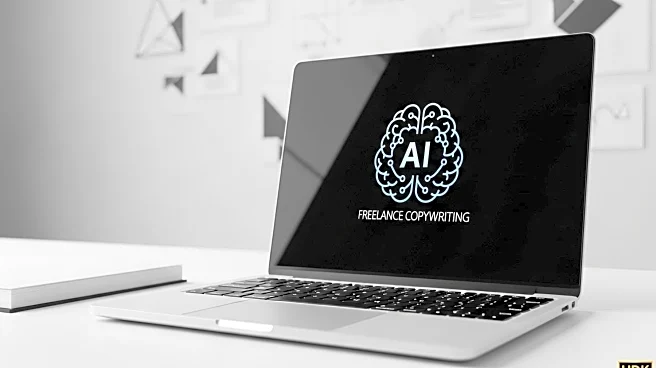What's Happening?
Jessica Camilleri-Shelton, a freelance copywriter and content creator, has significantly transformed her career by integrating AI tools into her workflow. Over the past two and a half years, she has doubled her income and enhanced her productivity by using AI models like ChatGPT and Claude. These tools assist her in managing tasks, creating content, and maintaining focus during client meetings. Camilleri-Shelton uses ChatGPT as a personal assistant to plan her day and prioritize tasks, while Claude serves as her creative writing partner, helping her script social media content and newsletters. Additionally, she employs Perplexity for research, Fathom for client meeting summaries, and Canva for graphic design. Her strategic use of AI has allowed her to free up time to build her business and social media presence, demonstrating the potential of AI in professional development.
Why It's Important?
The integration of AI tools in professional workflows highlights the growing importance of technology in enhancing productivity and creativity. For freelancers and small business owners, AI offers a way to streamline operations, reduce workload, and improve output quality. Camilleri-Shelton's experience underscores the potential for AI to transform industries by enabling individuals to focus on strategic growth rather than mundane tasks. This shift could lead to increased competitiveness and innovation in various sectors, as professionals leverage AI to optimize their work processes. However, it also raises questions about privacy and the need for human oversight in AI-driven tasks, emphasizing the importance of setting boundaries and maintaining ethical standards.
What's Next?
As AI continues to evolve, professionals like Camilleri-Shelton may explore new applications and tools to further enhance their workflows. The ongoing development of AI models could lead to more sophisticated capabilities, offering even greater efficiency and creativity in content creation and business strategy. Stakeholders in the tech industry may focus on improving AI's accessibility and usability, ensuring that more individuals can benefit from its advantages. Additionally, discussions around privacy and ethical use of AI are likely to intensify, prompting businesses and individuals to establish clear guidelines for AI integration.
Beyond the Headlines
The use of AI in professional settings not only impacts productivity but also influences the cultural perception of technology in the workplace. As AI becomes more integrated into daily tasks, it may shift societal attitudes towards automation and digital assistance. This could lead to broader acceptance of AI as a valuable tool rather than a threat to employment. Furthermore, the ethical considerations surrounding AI use, such as data privacy and reliance on technology for mental health support, highlight the need for ongoing dialogue and regulation to ensure responsible use.











